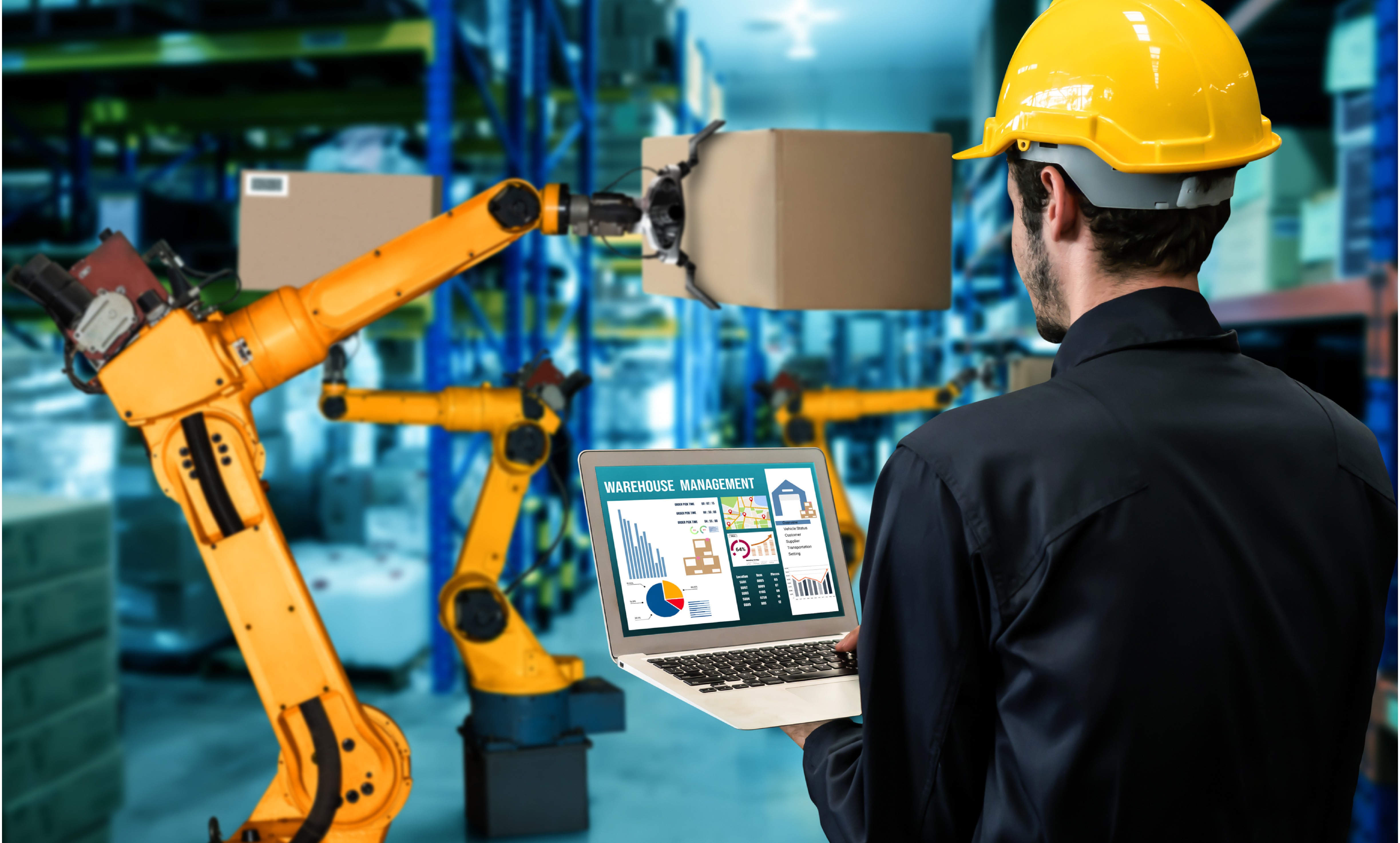

Office No. 3/2, 4th Floor, Prakash Landmark, Opp. Panjarpol, Pune-Nashik Highway, Bhosari, Pune - 411039

March 16, 2024 Supply chains are under constant pressure to deliver more, better, and faster. Companies must create a competitive advantage through their logistics and warehouse management processes to keep up with rising demands. Automation can have a significant role in that, but to benefit from it the most, you need to invest in the right foundations. So, let´s see what it is and how it influences warehouse operations.
By combining mechanics and software, warehouse automation makes your operations smarter, enabling you to produce more with fewer resources. Automation warehouse solutions provide the range, agility, and speed necessary to fulfill customer expectations and handle an omnichannel approach. Logistics warehouse automation levels can vary enormously for different companies and industries, so first, you need to understand how it works and for which purpose you will use it.
To break it down, let’s start with what warehouse activities are about; processes. On an aggregated level, there are two kinds of warehouse processes that can be automated:
It is about handling the information to optimize warehouse processes, utilize resources, and decide where to store and how to pick. Automated decision-making removes the potential of human error and increases warehouse efficiency, thus contributing to a better customer experience through a quicker shipping process.
It is about how you move goods within the warehouse, all the way from inbound through storage, picking, packing, and outbound. The automation of these processes can increase efficiency, reduce workplace injuries, and improve warehouse productivity.
When done the right way, warehouse automation can improve efficiency, productivity, sustainability, and customer experience and offer employees more opportunities to develop a broader skillset. on the most basic level, it can help improve revenue and facilitate omnichannel growth.
Higher throughput - automation can help cope with growing demands, ensuring that everything is tracked, traced, and handled more efficiently. this can contribute to higher throughput and, ultimately, increase your profit margins. Optimized space utilization – as it costs money, space utilization should be as effective as possible. automation can help you fully optimize your warehouse and ensure that all shipments are processed quickly. Improved workplace safety – fewer people carry out manual work with automated warehouse processes. this reduces labor costs and minimizes the risk of accidents and work related injuries. also, decreasing the number of monotonous tasks allows employees to focus on more meaningful work. by providing a better work environment, you are more likely to attract people that can help to improve your business. Better planning - through automation, your systems can gather data and make accurate predictions for the future, allowing you to prepare well in advance. this means you can maximize your potential and always be in a position where you can offer your customers precisely what they need when they need it
With rising customer demands and more complex processes, logistics warehouse automation worldwide is expected to accelerate in the coming years. To start or evolve automation in your warehouse, you need to find the setup that best supports your needs and goals. When implemented the right way, automated warehouse systems can have a huge, positive impact on your business, ensuring higher throughput, more effective space utilization, improved workplace safety, and better planning for future demands.